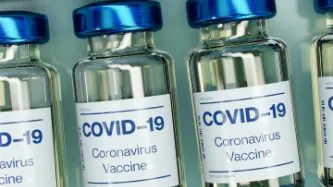Search
Content type: Long Read
As we see Covid-19 vaccination programmes beginning around the world, for the first time since the start of the pandemic there seems to be a light at the end of the tunnel as the fruition of truly unrivalled global scientific efforts has given us hope of saving lives, reopening our societies, and going back to “normal”.
This great moment of hope must not be seen opportunistically as yet another data grab. The deployment of vaccines, and in particular any “immunity passport” or certificate…
Content type: Explainer
Definition
An immunity passport (also known as a 'risk-free certificate' or 'immunity certificate') is a credential given to a person who is assumed to be immune from COVID-19 and so protected against re-infection. This 'passport' would give them rights and privileges that other members of the community do not have such as to work or travel.
For Covid-19 this requires a process through which people are reliably tested for immunity and there is a secure process of issuing a document or other…
Content type: Examples
Immunity passports are likely to increase discrimination and threaten fairness and public health - and won't work for practical reasons. First and foremost, scientists do not yet know whether infection confers immunity or for how long; the serological tests so far developed are insufficiently reliable; the volume of testing required is not feasible; and no country has enough survivors of COVID-19 to boost its economy. There are also numerous ethical objections.
Writer: Natalie Kofler and…

